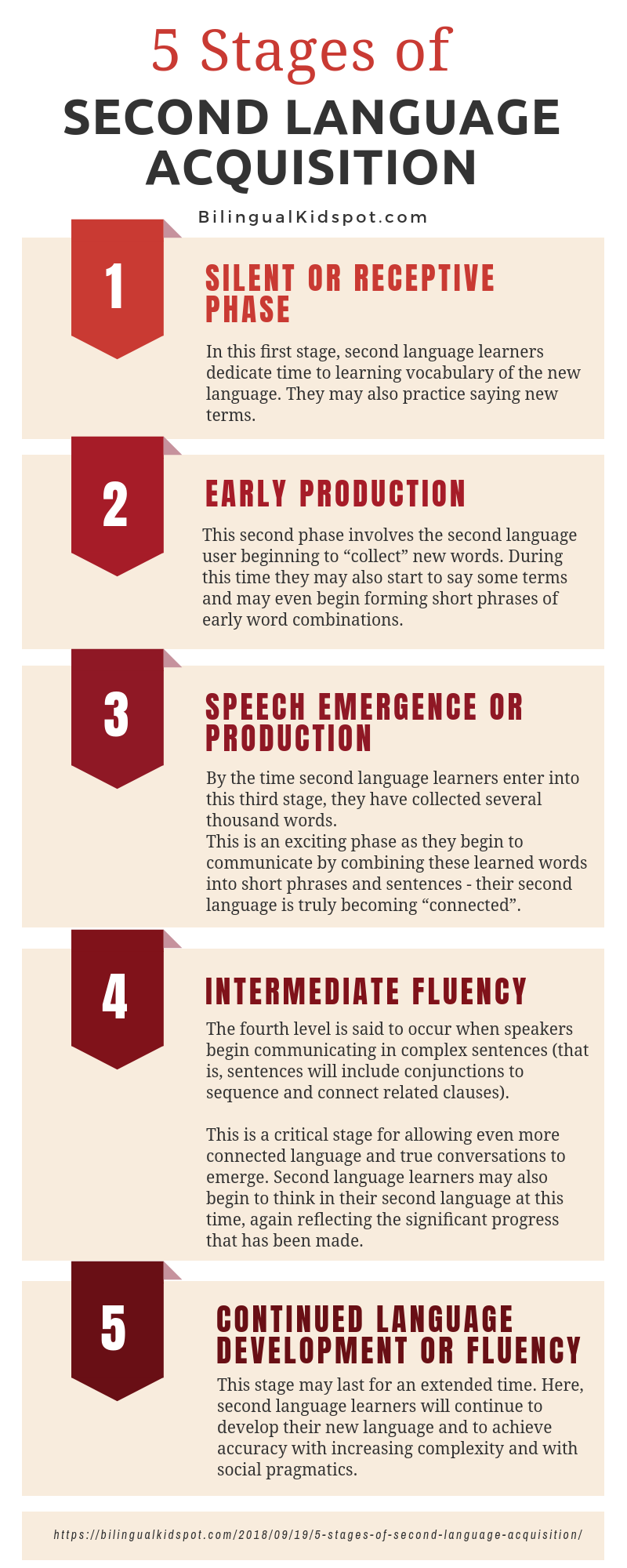Robert Hall’s Updates
Update 2: Bilingualism - Acquiring a Second Language
I've had the privilege of being able to live in other countries and experience the challenges of acquiring the language of each country. The process of acquiring a second language has always fascinated me. Acquiring a second language is certainly not as easy as attending a training course or listening to some words and phrases on a cell phone app. "In many cases, adults are exposed to a foreign language in a classroom. The grammar rules of the language are taught by an instructor, the same way as math or literature, for example. This is very different from the first language scenario, where teaching does not take place." As children move through phases of language acquisition (from pre-language to abstract reasoning), the following infographic shows how we move through a specific process of second language acquisition:
In 1989, I moved to Sao Paulo, Brazil. I had 3 years of French in high school, but learned almost nothing. It wasn't until I was totally immersed in Portuguese that I fully acquired a second language. I went through each of the 5 stages listed above. I learned the dynamics of word translation and basic scentence structure; next, I could understand but only speak in broken, memorized phrases; then I could speak in full scenteces and carry on complex conversations, but with hesitations as I had to translate in my head; then, I was able to confidently carry on conversations with very little hesitations as there was less and less pausing to translate in my head. After a year or so in the country, I was fluent.
It is suggested that "Connected with the critical period is brain plasticity, which begins to decline after puberty. Thus, even if a speaker is immersed in a foreign language, e.g., an immigrant, in addition to being taught a language, she/he will show some traces of not being a native speaker. Most typically, it is a foreign accent, in spite of perfect grammar or may be, mistakes in idiomatic expressions." This, in my experience, is an individual matter. I know of individuals, as late adults, who have gained fluency in a second language and speak as a native of a given language. I was, at one time, as an adult, a native-like, fluent Portuguese speaker. After a few years of less and less exposure to the language and lack of use, I have experience language attrition, and have lost a lot of native accent and even basic vocabulary.
There are some brain benefits of learning a second language, as outlined in the following video:
I'm excited about the benefits of acquiring a second language. Increases activity in both hemispheres of the brain, a greater chance of avoiding neurological diseases like Alzheimers, and the ability to travel and communicate with others in their native language is motivation for me to do all I can to keep up with languages learned.
Resources:
https://bilingualkidspot.com/2018/09/19/5-stages-of-second-language-acquisition/5-stages-of-second-language-acquisition-infographic/
https://ideasandsociety.ucr.edu/programs/bilingualism/
http://www.imedpub.com/articles/cognitive-science-and-language-acquisition.php?aid=23052
https://youtu.be/MMmOLN5zBLY



